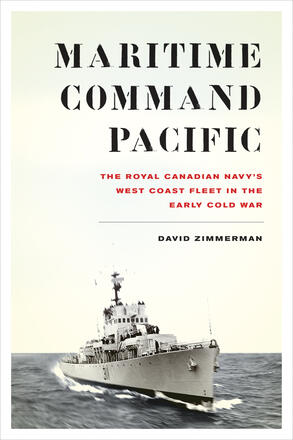
Maritime Command Pacific
The Royal Canadian Navy’s West Coast Fleet in the Early Cold War
One of Canada’s leading military historians recounts the story of the Canadian navy’s Pacific fleet during the tense years of the early Cold War.
Description
The Royal Canadian Navy crews that sailed the Atlantic during the early Cold War held a contemptuous view of their West Coast brethren, likening the Pacific fleet to a “yacht club” where sailors enjoyed a life of leisurely service on a tranquil sea. As David Zimmerman reveals, nothing could be further from the truth. From the fleet’s postwar downsizing, through to its rapid expansion in the wake of the Korean War as Cold War fears gripped the nation, Maritime Command Pacific fought to hold steady amid drifting Japanese mines, Soviet submarines, and joint US-Canadian training exercises.
Reviews
Any scholar of Cold War naval policy will benefit from reading this book. David Zimmerman sets out to correct the absence of works on the Canadian West Coast Fleet. … The book is superbly organized … [and] serves as an excellent example of examining all elements of a navy and not simply the fleet and strategy. Additionally, the book is a welcome break from the U.S.-centric perspective.
- Sean Getway, independent scholar